Everything concrete producers you should know about NPDES stormwater permits & concrete plants.
When it comes to concrete plants, whether it’s a ready-mix operation, precast concrete plant, brick, block, pipe plant, you name it, one of the most common problems producers have to deal with is stormwater permits. Concrete plants of all shapes and sizes across the US often struggle with their NPDES stormwater discharge permits. How come?
Simple. Stormwater permits can be confusing, regulations change from state to state, the government generally (in our opinion and experience) does a poor job of enforcing regulations, and the concrete industry by and large has escaped scrutiny for a long time.
So, whether you are new to the industry, just found out you need a permit, need to talk to an expert about your existing permit, or are dealing with violations from regulators or 3rd party environmental group, you’ve come to the right place. Let’s dive in and answer the most common questions we hear from concrete producers across the US regarding stormwater discharge permits.
What is a stormwater permit?
A stormwater permit is a type of NPDES (National Pollutant Discharge Elimination System) or “water quality permit”, which allows you to discharge stormwater from your property. These national level permits aim to eliminate the pollutants in your discharges through a permit system. Simple enough, right?
The government regulates the stormwater that comes off your property because when it lands on your yard and comes into contact with sand, stone, dust, any spilled admixtures or fuels, or anything else, it picks up contaminants, the water then gets “polluted” and leaves your property dirtier than when it fell from the sky. In other words, the government allows you to have a permit to discharge potentially polluted stormwater, subject to the terms and conditions of the stormwater permit.
Stormwater permits are for all types of facilities, including industrial operations, construction activities, municipalities, and even certain commercial operations in certain states. A concrete plant, regardless of the kind of concrete product that’s produced, is considered to be an industrial facility, and therefore needs a stormwater permit.
And bear in mind, the word is stormwater, not process, wash, waste, rinse, or any other type of water. These permits are only valid for stormwater (in most cases), so it’s more than likely you should NOT be discharging any other water from your property.
Can stormwater permits have other names?
Yes, this is very, very common. Stormwater permits that concrete plants must get covered under can have a variety of names. Many states call them NPDES permits, while other states call them something more specific.
- New York calls their stormwater permits SPDES permits.
- New Jersey calls their permits NJPDES permits.
- Virginia calls them VPDES permits.
- Kentucky calls their stormwater permits KPDES permits.
And so on and so on.
Point is, there are numerous different names for stormwater permits, and if you’ve ever seen something similar to “NPDES permit”, chances are pretty good you’re looking at a stormwater permit of some kind.
Does every concrete plant need a stormwater permit?
Any concrete plant, whether it’s ready mix, precast, brick, block, pipe, paver, you name it, is going to need a stormwater permit.
In fact, any industrial operation (with very few exceptions) is going to need a stormwater permit. Virtually every state in the United States is going to require any type of industrial (and some commercial) operations, be it concrete plants, asphalt plants, mining operations, quarries, factories, mills, etc., to have a stormwater permit in some way, shape, or form.
Long story short, the answer is almost always going to be yes, every concrete plant, with few exceptions, is going to need some type of NPDES stormwater permit, regardless of where it’s located.
Who enforces stormwater permits at concrete plants?
Depending on the state, you’re either going to be “regulated” by the environmental department or agency within the state, or in non-delegated states, the USEPA. In some areas you might even have municipal, city, or county regulators enforcing regulations at your facility. It all depends on what state you’re in, and to an extent, where you’re located within that state. You could have a city regulator, a state regulator, and a USEPA official at your concrete plant, all who can in some way enforce stormwater regulations.
In most cases you’ll be dealing with state regulators who are primarily the ones enforcing stormwater regulations at any type of industrial facility.
Why do I need a stormwater permit at a concrete plant?
Because it’s the law. Industrial operations, which concrete plants are, need to be covered under applicable stormwater permits because that’s how the law works. Wondering why you need a permit is like asking why you have to pay taxes or follow speed limits. You just do.
Regulations require your concrete plant has a stormwater permit because when stormwater lands on your property, comes into contact with pollutants, and leaves your property, you are essentially polluting waterbodies with the stuff that sits on your yard. A lot of concrete producers like to say they don’t have pollutants, but when you think about it, things like cement dust, admixtures, and oil and grease aren’t normally in lakes and rivers, right? Those are the sort of pollutants I’m referring to. Regardless of whether your discharges go into a municipal stormwater system, a pond, river, lake, etc., you’re going to need a permit.

Concrete plants, whether ready-mixed, precast, brick and block plants, pipe plants, etc., all need to have a stormwater permit under most circumstances. We’ve been on-site at over 1,000 different concrete plants across the United States, and I can honestly only recall a handful of facilities that truly didn’t need a stormwater permit.
If you don’t get covered under a permit, you could get in trouble, including everything from monetary fines, to criminal violations (including jail time) for extreme cases. In other words, you’ll stay out of trouble by having a stormwater permit at your concrete plant and staying in compliance.
From an environmental perspective, it’s because the stormwater leaving your property is polluted. Would you drink it? Would you fill a pool with it? Would you swim or fish in it? The answer of course is no. If everyone discharged whatever they wanted, we’d have waterbodies all over the United States that were highly contaminated.
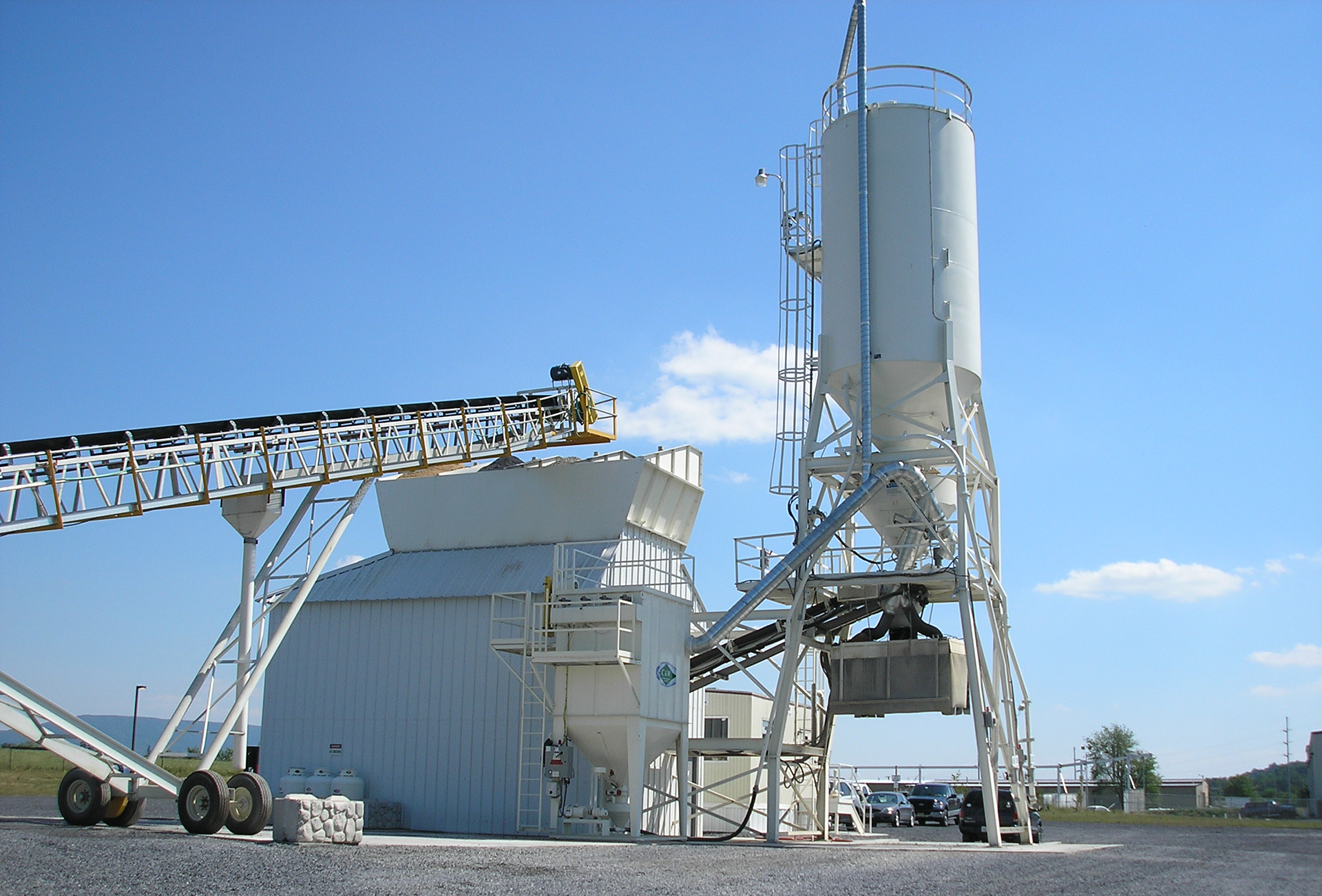
Are there different types of stormwater permits for concrete plants?
Yes, there are usually different types of NPDES permits available to concrete plants, but not in the manner you’re thinking.
For concrete plants, nearly every state has more than one type of NPDES permit available for permit coverage at a concrete plant, usually general or generic permits, and individual permits.
General permits are stormwater permits which cover one or more types of groups of facilities, which are similar in scope and operation, as well as discharge types and pollutants discharged. These are often referred to as industry-specific general permits, and numerous states have concrete industry-specific general permits. Some state’s concrete-specific general permits allow the discharge of more than just stormwater, typically referred to as non-stormwater, process wastewater, or process water discharges (such as those from mixer truck washout or chute rinsing activities for example).
On the Federal level and in many NPDES-delegated states, there is one catch-all general permit known as the Multi-Sector General Permit (or “MSGP permit”) which can cover almost anyone who needs stormwater permit coverage, including concrete plants of all types.
But often, general permits come with stringent conditions to address a wide scope of facilities, which don’t quite fit your particular circumstances. In that case, you can always apply for an “Individual NPDES Permit” which is written by the regulatory agency specifically for you and your specific situation. Individual Permits tend to be more complicated, more costly, and take a lot longer to issue.
Whenever possible, use a General Permit, provided it fits what you’re doing, and your concrete plant qualifies. And in all cases, review the permits before you apply for them!
What do I need to do to get a stormwater permit for a concrete plant?
That depends on what type of permit you’re seeking.
If you’re seeking coverage under a general or generic stormwater permit for a concrete plant, your first order of business should be to get a publicly available copy of the permit and read it – carefully! Make sure you can meet the permit requirements. In fact, you’ll likely have to certify that you meet the permit requirements before you make an application for coverage under that permit, so make sure you know what you’re doing (or get professional help).
If you’re going to have to be covered by an Individual NPDES permit, then you can’t do this since it’s only issued after you’ve completed your application.
In both cases, you’ll need to make an application to the applicable NPDES permit issuing agency (usually your state’s environmental agency or department, unless you’re in a non-delegated state), along with all application materials (things like an application, site plans, copy of your SWPPP, application fees, etc.). After the application is processed, you might be asked for some additional information to complete your application, all depending on how your state issues stormwater permits for concrete plants. After that, hopefully your application is complete, your permit is issued, and then, you must begin operating under the terms and conditions of that permit, which will include a whole lot of additional things to do.
Just bear in mind, this is going to differ on a state to state basis. Some states are great and quick at doing this, while other states move at a snail’s pace. If you’re in a jam, aren’t sure what to do, or need help, contact us for more information.
Can I obtain a stormwater permit or prepare a SWPPP myself for a concrete plant?
In some cases, yes, and in some cases no. It’s going to depend on the regulations surrounding stormwater permits for concrete plants in your state. Some states require certifications to be able to get covered under the permit or prepare a SWPPP for yourself.
Assuming the answer is yes (because for most people it is), for a very simple concrete plant operation, it might be possible for you to get a stormwater permit or create your SWPPP yourself, provided you have at least a moderate amount of technical skill.
But for average sized concrete plants, plants co-located on industrial properties, or anyone else who can’t or doesn’t want to learn the regulations, it might be better to get the help of an expert to get your permit or prepare your SWPPP, since it can get complicated. Making the wrong choices can have bad consequences, including incorrect permits, incomplete SWPPPs, invalid or inappropriate BMPs, bad monitoring results, and worst of all, non-compliance and possible violations and fines.
Even hiring an environmental professional who’s not an expert in the concrete industry, or stormwater permits and the challenges concrete plants staying in compliance those permits, can be a mistake. All too often we’ve seen companies hire “the big firms” because they know the name, to deal with “experts” who have to learn on the job.
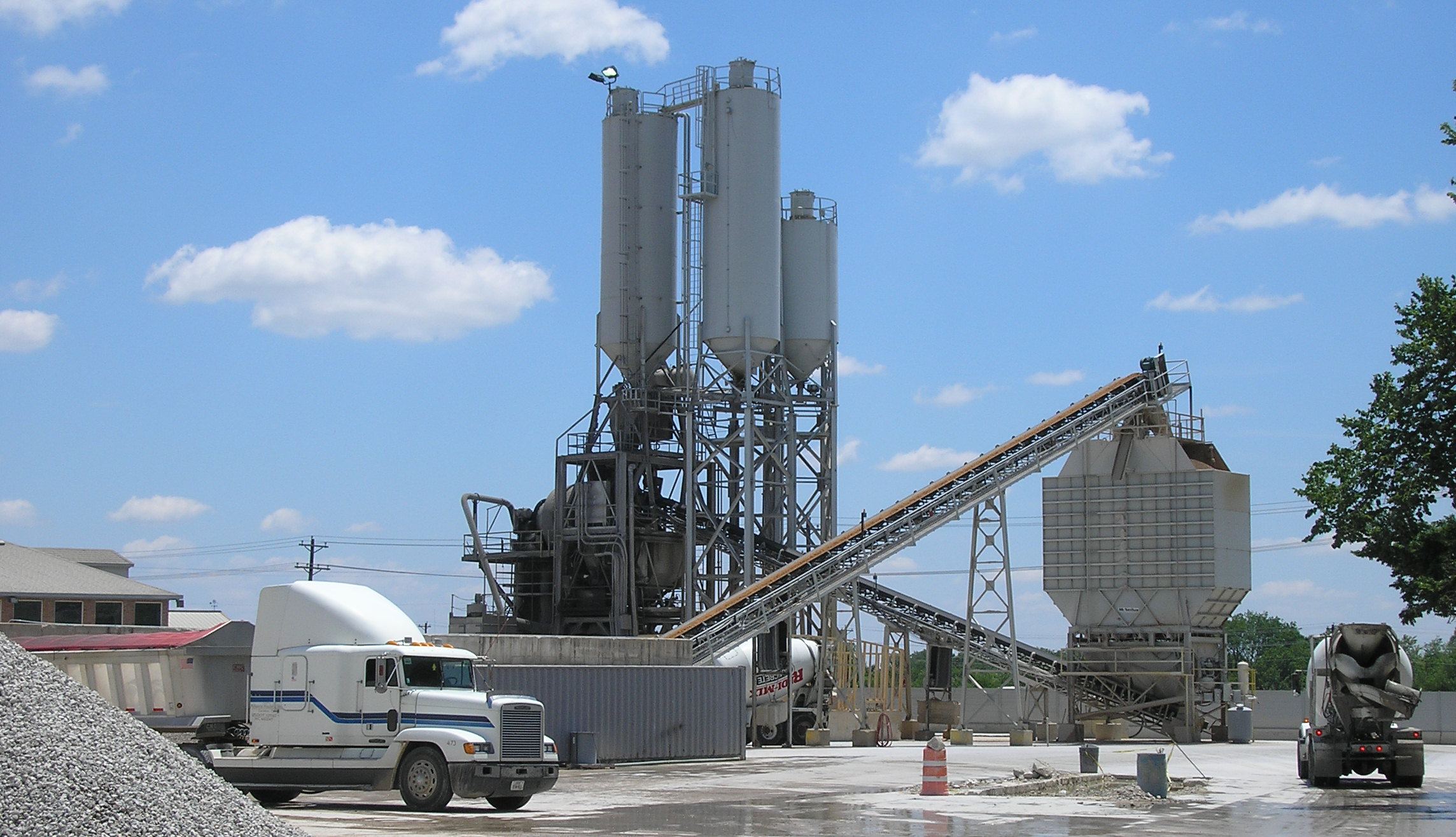
How long does it take to get a stormwater permit for a concrete plant?
That depends on who is issuing the permit, and what type of permit you’re seeking.
Simple permits, called “general permits” or “generic permits” usually can be obtained pretty quickly, sometimes in as little as a few days. Some states get permits in and back out the door in no time, while others can take months to years. Yes, we’ve dealt with state environmental agencies and departments that have taken YEARS to issue simple permits. Some states just don’t move fast.
Complicated permits or “Individual Permits” often take months to a few years to issue.
From our experience, obtaining coverage under a general or generic NPDES stormwater permit at a concrete plant that meets the permit requirements usually takes around a month to obtain. More than that and something’s wrong on either end.

How long is a stormwater permit at a concrete plant good for?
NPDES stormwater permits, regardless of where you’re located, are almost always good for 5 years.
States are either in one of two situations:
- There are permits which all have the same expiration date, regardless of when you got covered. So, let’s say that in a pretend state that the permit is set to expire this year on December 31st. If that’s the case, you, and every other concrete plant in this made up state will all have your stormwater permit expire on the 31st. When it expires, the state should issue a new permit, which is usually the same thing as the old permit, with a few new, minor tweaks. You might have to file some paperwork saying you’re still in business and still need a permit, but it should be simple. Sometimes you may need new SWPPPs, new training, or must re-apply for the permit, it all depends. If there is no new permit, then the old, expired permit remains in effect until a new one is issued. Your permit doesn’t expire, and you get out of having to follow the rules.
- There are also permits which aren’t really tied to each other, but instead your coverage is good for 5 years from the date of issuance of your permit coverage. For example, if you got covered under a stormwater permit at your concrete plant this year on July 1st, your coverage would expire 5 years later on June 30th. In these cases, after 5 years your permit expires and you either need to reapply for a permit and get a new one, or your coverage will lapse, and you’re not allowed to discharge stormwater.
I know, kind of complex, kind of difficult to grasp sometimes, but depending on your state and permit coverage, it’s most likely one of these two situations is going to apply to you.
Do stormwater permits at concrete plants ever expire?
Yes, and depending on the state and the permit details, it’s either going to be tied to your issuance date, meaning your expiration date is specific to you, or it’s going to apply to every permit holder. The last question goes over this in details and is worth a read regarding how issuance and expiration dates for stormwater permits works.
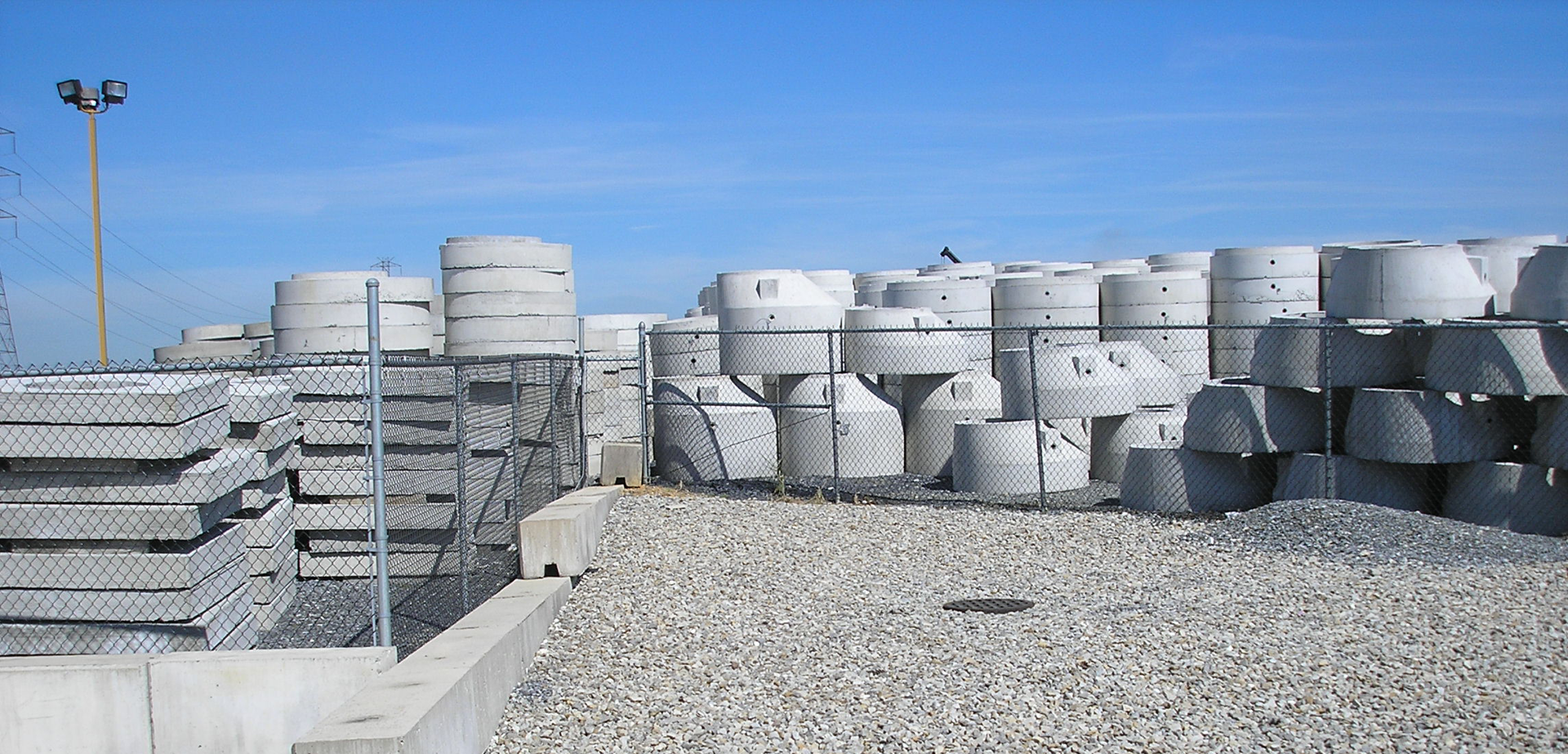
How much does a stormwater permit cost for a concrete plant?
Just like if a customer asks how much does concrete cost, the answer is always it depends.
In this instance, stormwater permits at concrete plants can cost anywhere from next to nothing, say a few hundred dollars, to thousands and thousands of dollars. From our experience, across the entire United States, the average cost for a concrete plant stormwater permit is probably somewhere in the few hundred dollars per year range.
It depends on who you are getting the permit from (whether a State agency or the Federal USEPA in non-delegated states and US territories), and the various stormwater permits offered. Since each state is free to create their own NPDES permitting program, they can also charge whatever they wish for a stormwater permit.
And bear in mind, that’s only the cost of the permit itself, and doesn’t include any other costs, such as necessary site changes, the costs of implementing BMPs, stormwater sampling and monitoring costs, professional or legal costs (if needed), certifications, required annual training, equipment, or other various costs, all of which can drive up the cost. Generally, the biggest costs with stormwater permits at concrete plants are the on-going costs, not the permit itself.
Just like buying a car, the more things you tack on, the higher the cost of the stormwater permit at your concrete plant.
How much does it cost for an expert to prepare a stormwater plan for me for a concrete plant?
Figure an average cost for an environmental professional to get a concrete plan covered under a stormwater permit, develop a SWPPP, and conduct environmental training will be somewhere around $4,000 - $5,000 for a concrete plant.
It depends on the size and complexity of your concrete plant and its operations, as well as the permit you’re covered under. Generally, the cost is going to be somewhere between $1,500 and upwards of $15,000, depending on the size and complexity of the facility, the level of involvement of the environmental professional, any training, sampling, inspections, or other supplemental services that may or may not be needed.
Does a concrete plant still need a stormwater permit even if it’s not near a waterbody?
Generally, yes, but there are some exceptions.
Even if you’re miles away from a waterbody, you’re still going to need a stormwater permit. Most states only regulate the discharging of stormwater into waterbodies, or anything that could connect to a waterbody, like a tributary, sewer system, drainage-way, retention pond, where some other states also regulate the discharging of water to the ground often called a discharge to groundwater.
Meaning, even if you’re far away from a waterbody, the chances are still very good that you’re going to need a stormwater permit at your concrete plant.
What if everything about my concrete plant operation is indoors or under cover, do I still need a stormwater permit?
Another great question, although from our experience we don’t see that many concrete plants which are entirely indoors or under cover. In the 1,000+ concrete plants we’ve been to, I could say only 1 or 2 unique operations were ENTIRELY indoors or under cover.
Consider that the definition of industrial activity at a concrete plant includes not only the normal typical operations that you might expect to be outdoors, such as aggregate storage, fuel tanks, etc., but driveways and paved and unpaved drive aisles at the plant which handle raw or finished materials.
In most cases, it seems improbable that a concrete plant might be able to avoid needing a stormwater permit, but if you think this might apply to you, your best bet is to have a professional take a look and make an informed determination. When in doubt, talk to an expert.
If you are truly, 100% under cover, then no, your concrete plant may not need a stormwater permit. If that’s the case then you ought to notify the state or USEPA to let them know you believe a permit is not needed and why, in order to get their blessing on your determination otherwise you risk enforcement action or a penalty.
Many states have some form of “non-exposure certification” for facilities that have all activities, raw materials, finished products, equipment, etc. indoors or under permanent cover. You could always say it’s a certificate saying you don’t need a stormwater permit.
In other states, there’s permits for facilities that don’t need permits, as weird as that is to say, such as the 5G2 Permit in New Jersey, which is a permit for facilities entirely indoors.
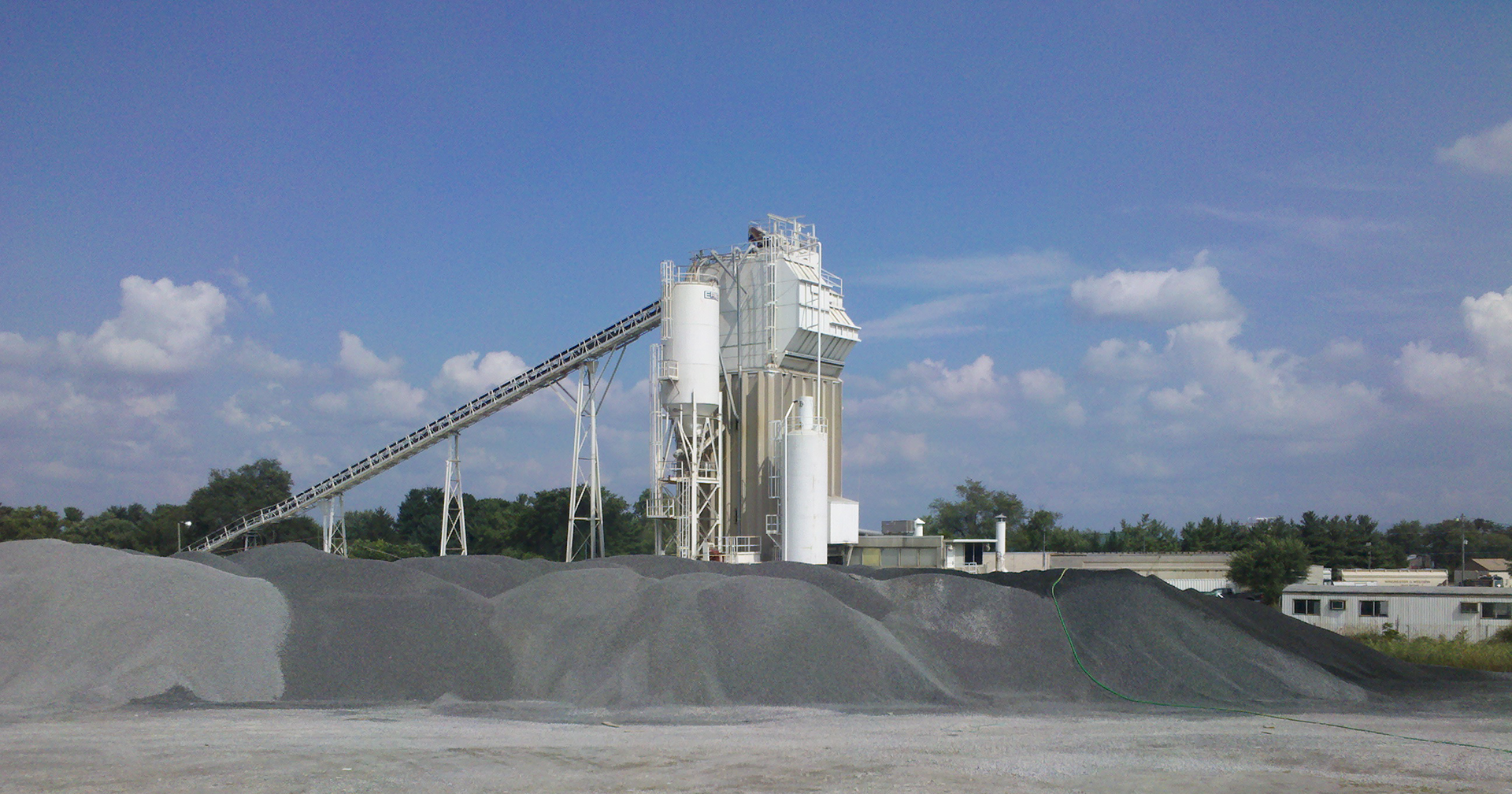
What will I need to do at a concrete plant under a stormwater permit?
All of these requirements are geared to reducing or eliminating the potential amount of pollutants in the stormwater you discharge, and to confirming the success of the strategies used for that pollution reduction. A general rundown of your requirements under your stormwater permit for a concrete plant are as follows, which can vary depending on the state you’re in and the type of permit you get:
SWPPP
You’re going to need to prepare and implement a Stormwater Pollution Prevention Plan, or SWPPP, or SWP3. While they’re often called other things in some states (Florida for example refers to it as a “WSMP”, and Pennsylvania calls it a “PPC Plan”), they’re all pretty much the same thing. Some people call these BMP Plans, other call them stormwater plans, whatever you (or the state) calls it, you’ll more than likely need one.
Stormwater BMPs
You’re going to have to implement a bunch of practices or structural changes to your concrete plant, which collectively we (and many states) call Best Management Practices or “BMPs”.
These range from conducting regular inspections, to staff training, to measures to control soil erosion, to covering source materials or putting them indoors, spill control and cleanup measures, and any special structural changes you might require at your site. There are both generic BMPs and site-specific BMPs. For example, a generic BMP might be housekeeping like sweeping or trash removal, which ALL concrete plants need to do. Site specific BMPs might be things like using hay-bales around catch basis to filter stomwater discharges. If you don’t have catch basins, or your stormwater goes into your settling basin, then you wouldn’t need to use hay-bales.
All BMPs have one goal, and that is to reduce the amount of pollution in stormwater that is discharged from your concrete plant site.

Stormwater Inspections
You’ll have to do inspections at your concrete plant, no matter what type of stormwater permit you have. These vary by permit, but usually they include at least quarterly routine inspections of your concrete plant to ensure that your BMPs are sufficient and working properly, no spills or leaks or present, your stormwater discharge point (“outfall”) doesn’t show signs of pollutants being discharged from your site, etc.
In many cases, you’ll also have to do a more comprehensive annual inspection of everything related to stormwater, such as an annual review of your SWPPP to make sure it’s up to date, that your annual training is being done, etc.
Stormwater Sampling & Monitoring
You may have to do monitoring of your stormwater. That means when it rains, a sample will have to be taken on a regular schedule (such as on a quarterly basis), sent off and analyzed by a certified lab to determine pollutant levels in stormwater runoff, and the results then reported to the applicable regulatory agency (USEPA or your state).
In some states, this is a complex, rigorous exercise, in others it’s more relaxed. As in most things, it depends on the permit you’re being covered under, and what you need to sample for.
Reporting
Reporting to the regulatory agency in charge of your stormwater permit is more than likely going to be required, for things like your annual progress, your stormwater results, and any problems or upset conditions you may encounter.
Stormwater Training
Just like anything else in life, practice makes perfect. If you don’t want any problems staying in compliance with the stormwater permit at your concrete plant, then you need training.
And, your state agency knows it too! In fact, they’ve made it a requirement of stormwater permits. We’ve NEVER seen a permit that didn’t require some form of at least annual training for your employees.
Record Keeping
Permits require you keep documentation of all activities related to your stormwater permit. Sampling results, documents proving training, etc. Some agencies are still requiring paper, while other have gone completely digital.
Less Requirements for Continued Compliance
These requirements aren’t a one-shot deal. You’ll have to continue these requirements throughout the lifetime of your permit.
Some permits do allow you to suspend parts of the requirements if, and only if, you’ve successfully stayed in compliance for a while, often several years. For example, if you get 2 years of good sampling results, you might only have to sample every six months instead of every 3 months. Conversely, if you are out of compliance, or your samples are bad, you might have increased requirements, such as monthly sampling instead of quarterly.
Will I have to keep all my stormwater on site if I am covered by a stormwater permit?
No. Remember, these are called NPDES permits, with the D standing for discharge. You are allowed to discharge stormwater, and do not need to keep stormwater on your site. You aren’t going to have to fill your settling basins with stormwater, you are in fact allowed to discharge your stormwater, but you’ll need to do a few things to make sure that stormwater isn’t overly polluted.
If my concrete plant doesn’t discharge stormwater will I still need a stormwater permit?
We’ve found over 30+ years of work in the stormwater permitting field, that most sites don’t meet the exclusion criteria, although there are some exceptions (such as concrete plants located in large quarries).
So, for most concrete plants, while it sounds possible, it’s not realistic, and a stormwater permit is almost always needed. Even facilities that can store or use their stormwater, and truly never discharge, will likely still need a permit. In cases like that, you’ll have a permit, and you’ll report over and over again that you don’t discharge.
If you think you might be exempt from the need for a stormwater permit, it might be worth talking to a concrete plant stormwater expert and getting a clear determination.
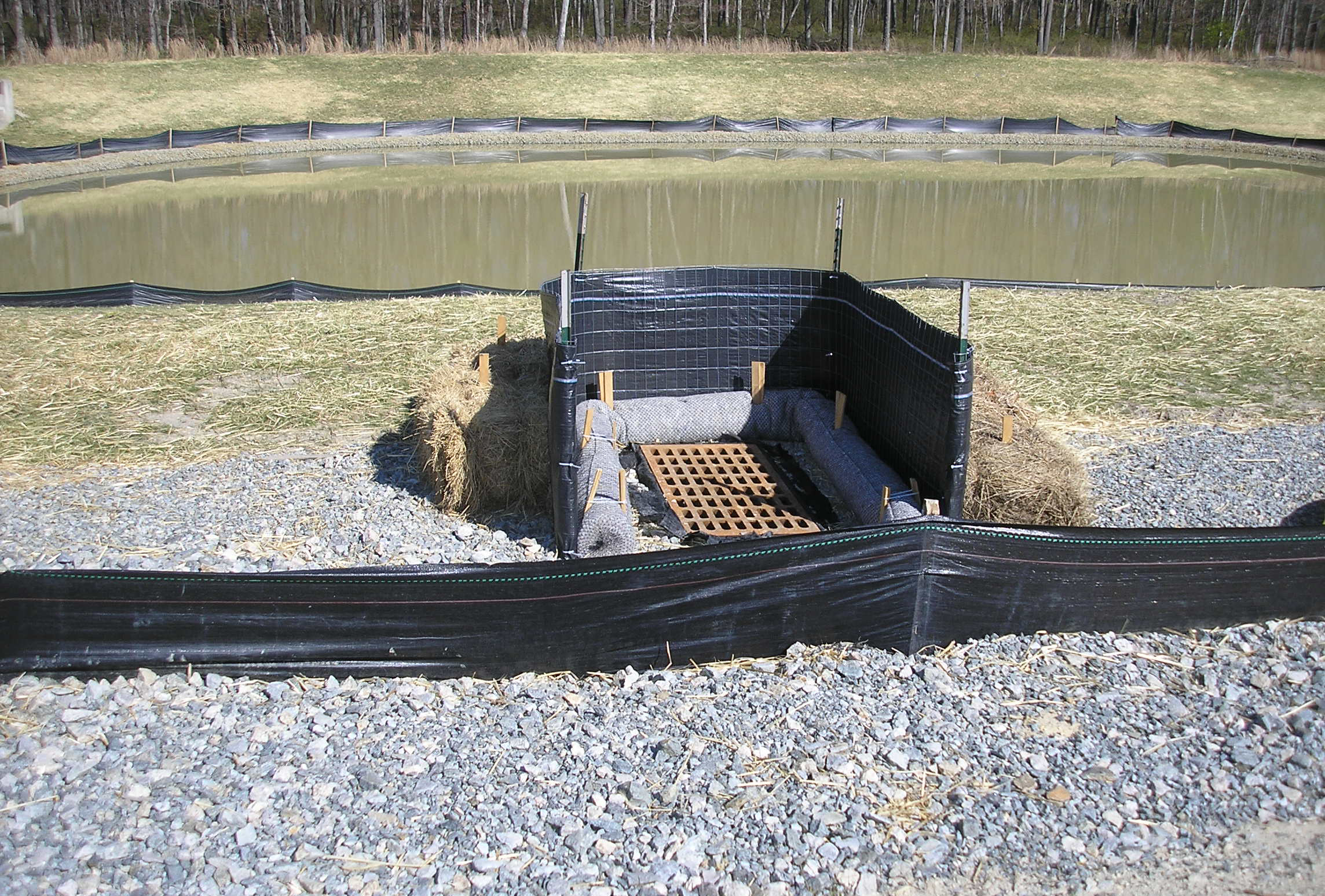
What can I discharge under a stormwater permit?
For virtually every concrete plant out there with a stormwater permit, you are only allowed to discharge stormwater. There are very few exceptions, but for the most part if you have a stormwater permit then you are only allowed to discharge water associated with storm events, meaning rain, hail, sleet, or even snow!
Discharging any process water, wash water, or any waste water, is very uncommon in terms of what permits allow, and doing so could land you in serious trouble.
Can my concrete plant discharge process water with a stormwater permit?
The answer is almost always no, not with a generic or general stormwater permit. If you absolutely need to discharge process water, then you might need coverage under an Individual Permit. To be clear, virtually no stormwater permits in the United States let you discharge anything else besides STORMWATER from a concrete plant. Got it?

Will my concrete plant get inspected by regulators for having a stormwater permit?
Yes, eventually you’ll have someone from a government agency come and inspect your concrete plant because you have a stormwater permit.
How often you’re inspected depends on a number of factors, but commonly you’ll be inspected at least once per year. Easier, smaller concrete plants with less capability to cause stormwater pollution might see inspectors less common (or sometimes not at all), while larger, more complicated facilities might see inspectors quarterly, or in some cases even monthly. Remember though, you can be inspected at any time!
Can regulators insect my concrete plant at any time?
The short answer is yes, anybody can show up at your concrete plant at any time. Chances are regulators will show up at your plant from 9 to 5, Monday through Friday. It’s unlikely that regulators or inspectors will show up at night or over the weekend or on a holiday, but it could, in theory, happen.
If regulators want to catch you off guard for any reason, they might come out to your concrete plant at more inconvenient times, such as right before closing. REMEMBER, always ask for identification.
Can the general public or 3rd party environmental groups inspect my concrete plant?
No, the general public, your neighbors, concerned citizens, just can’t show up and demand to inspect your facility. You have a concrete plant to run, and the general public start sticking their noses around your facility. Your operation, unless you run your plan otherwise, is private property and not opened to the public. Outside visitors should be sent to the main office, batch room, wherever you have visits sign in, so they can be dealt with accordingly.
The same goes for third party environmental groups too. People cannot inspect your concrete plant just because they want to. Over time, we’ve seen environmental groups operating under names that sound like governmental agencies act as if they’ve shown up to inspect your concrete plant, taking advantage of less knowledgeable staff members to allow them on-site. This might not be legal, but we’ve seen and heard it happen multiple times before, but once there on your property taking notes and snapping pictures, you could be in trouble.
Realistically though, the way technology is moving forward, the public doesn’t need to physically go to your concrete plant to “inspect you”. They can sit in front of a computer or tablet and “inspect” your concrete plant to see what pollutants are being discharged, whether they’re below benchmarks or limitations, and lots of other information (some potentially harmful)! Aerial photos, FOIA requests, Google Street view, drones, and other ways of gathering data means the public can figure out whether or not you’re in compliance with your stormwater permit at your concrete plant in a matter of minutes without ever leaving their home or office.
We’ve even heard of competitors, other producers, or those from competing industries, checking into whether other concrete plants are in compliance, and blowing the whistle on them if they aren’t! In this day in age, people and business are doing anything they can to stay ahead of their competition, even if that means seeing their competitors crash and burn because they weren’t following the law.
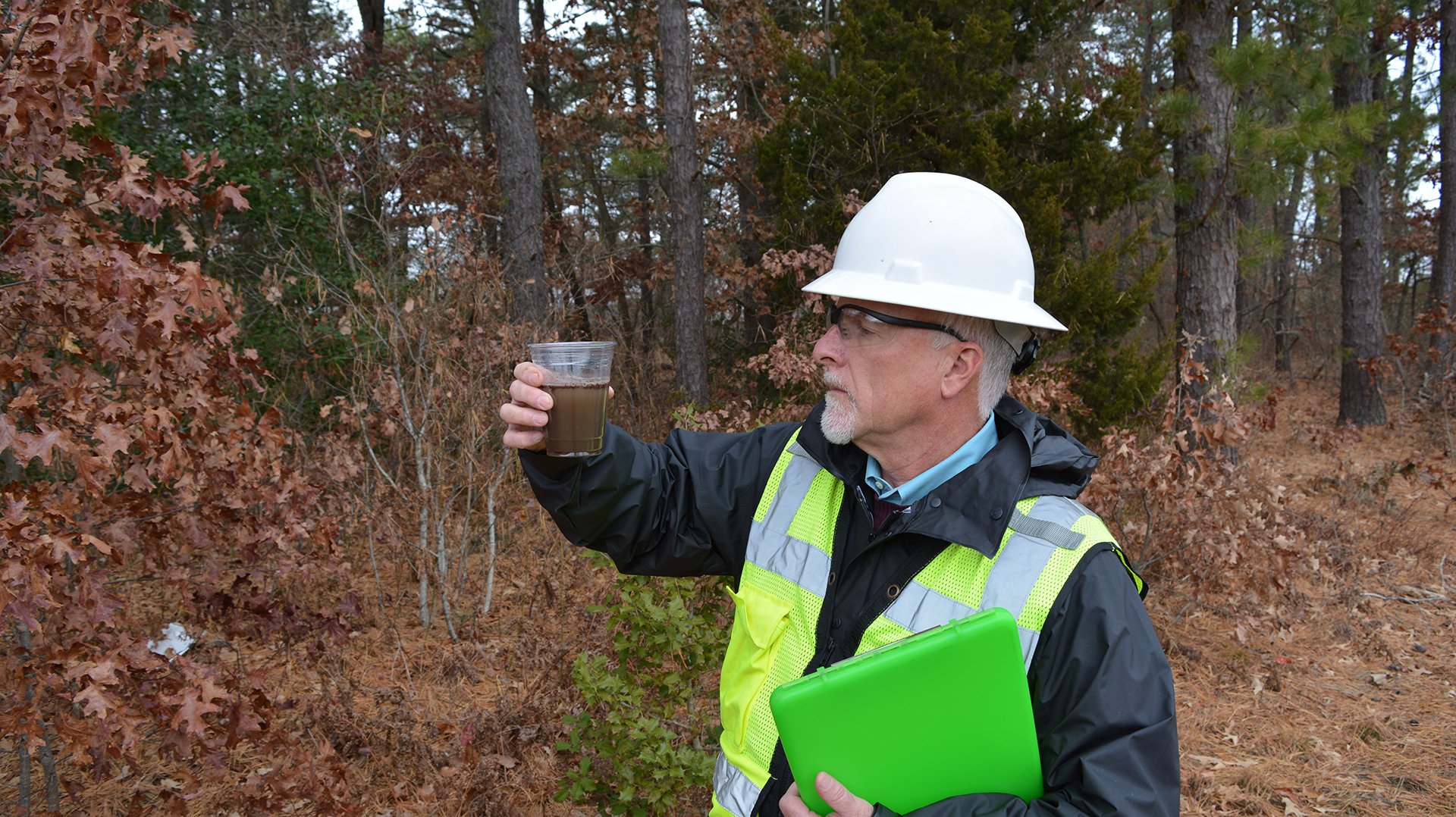
Can I get in trouble for not having a stormwater permit at my concrete plant?
Absolutely! Stormwater permits have been around for decades now, there’s no saying you didn’t know about them. Your state association knows about them (and is likely providing education on the subject), NRMCA knows about them (and I’m providing education on the subject, I’m the primary teacher at the annual NRMCA Environmental Short Course), and since stormwater permits apply to just about every industry out there, everyone else knows about them.
And, just like everything else, ignorance of the law is not a valid excuse.
Everyone out there, from producers, to customers, to drivers, to vendors, has likely in one way, shape, or form heard of stormwater permits, NPDES permits, MSGP permits, SWPPPs, or other stormwater related terms in one way or another. Every year concrete producers are getting in trouble for not doing what they should be under their permit, usually failing to take samples, discharging polluted stormwater, failing to conduct annual training, or other simple things that end up costing them big time.
Getting in trouble at your concrete plant could mean anything from a slap on the wrist and being told to fix your problems, to monetary fines, to shutting down your operation, to even criminal penalties if you’re doing something really bad at your concrete plant.
How much do stormwater violations cost?
More than you want to pay, let’s put it that way.
Every state has the right to charge what they want for stormwater permit violations, but generally it’s tens of thousands of dollars per violation, per day. For example, the USEPA has recently upped the maximum fine level to $54,833 per violation, per day.
Let’s pretend the USEPA is hitting you for one violation a day for a six-month period, that’s… a $9,800,000 fine you could be facing! Now, it’s unlikely you’re going to get the maximum fine (unless you’re really doing something bad) and it’s unlikely you’ll end up paying the full fine.
We’ve crunched the numbers from clients who have come to us after they’ve gotten in trouble and are facing fines and penalties and found that on average NPDES permit violations tend to run around $68,500 per facility once the dust settles and you reach a final settlement. That’s likely not going to bankrupt your company, but if you run a 15-plant operation, you could be cutting the check to the USEPA for over $1,000,000. Can you afford to pay a fine like that? Remember, that’s not including:
- Legal Fees – You’ll need a lawyer to deal with some of this stuff because you’re dealing with serious legal and financial ramifications here.
- Consulting Fees – If you hire us to fix your stormwater program, we aren’t doing it for free!
- Site Modifications / BMPs – If you need to modify your site in anyway, you’re going to pay for it.
- Equipment – Simple things like stormwater sampling kits, or pH kits can add up quickly if you need them at every concrete plant.
- Environmental Training – Staying in compliance is like working out at a gym. Do it once a year and you’ll see zero results. The more you learn, the better and easier it’ll be to stay in compliance.
- Full Compliance – If the USEPA busts you for not having a stormwater permit, or being out of compliance, you can bet they’re going to look into other areas of compliance, such as SPCC Plans, air permits, Tier II CRTK Reporting, TRI Reporting, and possibly even call in OSHA if they think there’s safety issues involved. Meaning, more costs!
- 3rd Party Lawsuit Costs - If a 3rd party sues you, chances are pretty good you’ll also be paying for their legal fees, and possibly even some type of donation or service for free. We see concrete producers forced to donate to local causes, environmental groups, charities, funds, or even provide concrete, products, or man-power for projects 3rd party groups deem important.

Need more information on concrete plants & stormwater permits?
Are you running a concrete plant and need help? If so, you've come to the right place. RMA has been actively involved in the concrete industry since our founding in 1992, including staff members from RMA serving on numerous boards and committees for state associations, NRMCA, and NPCA. We've been an integral part in developing NRMCA's Green-Star EMS and were instrumental in the development of the NRMCA Environmental Course, and our Principal Environmental Consultant Doug Ruhlin has taught the course every year since its inception.
Long story short, we know the ins and outs of the environmental problems concrete plants face better than anyone else. We've been on-site at close to 1,000 different concrete plants across the country, so when we say we've seen it all and done it all, we mean it. We've helped some of the biggest players in the industry on multi-state projects, as well as small mom and pop concrete producers running a handful of trucks. No matter your size, or the type of concrete you produce, we can help.
So, if you're having any type of issue at your concrete plant, we'd love to talk and learn how we can help. Even if we can't help, chances are pretty good we know who can help you, and we'd love to get you in touch with the right people to fit your needs.
To reach out, feel free to shoot us an email at info@rmagreen.com, click here to contact us, or give us a call anytime at 888-RMA-0230 to learn how we can help your concrete plant deal with environmental regulations.












